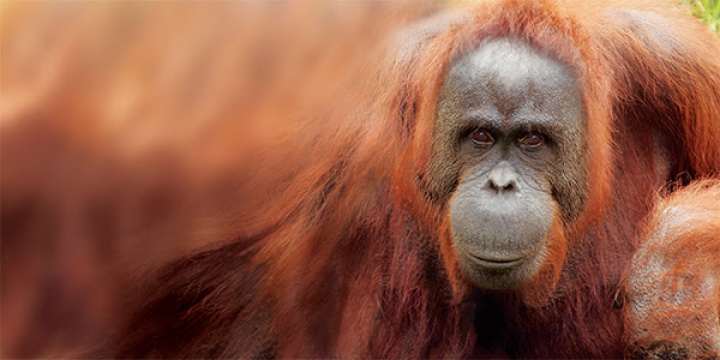Zoo’s orangutans to relocate while new home developed
Zoo’s orangutans to relocate while new home
developed

Auckland
Zoo’s three Bornean orangutans will move south to Orana
Wildlife Park for a two-year stay in late September ahead of
construction of a major new precinct for South East Asian
wildlife.
The $50m two-year development in the
heart of the Zoo is due to start in a few months’ time. It
is part of a $120m 10-year redevelopment programme being
funded through Auckland Council’s long-term plan, and
becomes the largest project in Auckland Zoo’s 95-year
history.
“This precinct will transform almost one fifth of the Zoo, and will offer our visitors a stunningly immersive experience of one of the most wildlife-rich but threatened places on Earth. It’s a region close to our hearts with big conservation challenges and opportunities, and an area that we’re very active in supporting,” says Auckland Zoo director, Jonathan Wilcken.
As well as providing an expansive new home for orangutans, who will live alongside siamang gibbons, the South East Asian focused precinct will also feature tigers, otters, and a diversity of reptile, fish, and invertebrates. In addition, the development will incorporate a new restaurant/function venue that will overlook the Zoo’s central lake.
For orangutans, male Charlie and females Melur and Wanita, the temporary move south to Orana Wildlife Park will be a change, but they’ll be going with the comfort and security of some familiar faces – their primate keepers.
“We’ve been working closely with our Orana colleagues who are spending time here getting to know our orangutans. Come the move, my team and I will take turns working between Auckland and Orana,” says Auckland Zoo Primate team leader, Amy Robbins. “This move will see these highly intelligent great apes get the best of both worlds – the security of us and the stimulation of a new environment and people.”
Orana Wildlife Park chief executive, Lynn Anderson says she and her team are very excited at the prospect of welcoming Auckland’s orangutans.
“These amazing apes will be housed next to our magnificent gorillas in the Great Ape Centre – a habitat that we opened in 2015, which has been designed to hold both gorillas and orangutans in separate spaces. The gorillas have captivated visitors and I am certain people will be equally enthralled with the awesome orangutans. It is great to work with Auckland Zoo on this transfer, a fantastic example of how zoos collaborate together for species’ conservation,” says Ms Anderson.
Join us this Saturday for World Orangutan Day
Ahead of Auckland Zoo’s orangutans relocating, public are encouraged to visit and celebrate these magnificent great apes this Saturday 19 August, World Orangutan Day.
On both Saturday 19 August and Sunday 20 August, among activities there will be special orangutan encounters twice daily, 12noon and 3pm, where you can see these incredibly agile apes (that are 97% genetically the same as us!) in action.
Orana Wildlife Park and Auckland Zoo have a history of working together on everything from animal transfers and skill-sharing to collaborating on the Ask for Choice campaign – lobbying for the mandatory labelling of palm oil on food products. Unsustainable practices such as deforestation to produce palm oil (an ingredient in 50% of supermarket products) remains the greatest threat to the survival of orangutans and many other South East Asian wildlife species.
Orangutan Fast Facts
• Malay for ‘person of the forest’, the orangutan is the world’s largest tree-dwelling mammal, and is 97% genetically similar to humans
• Conservation status: Bornean orangutan - Endangered (IUCN Red List) and Sumatran orangutan - Critically Endangered (IUCN Red List) due to growth of illegal deforestation for palm oil plantations, and the pet trade
• Role in the ecosystem: Orangutans are known as ‘gardeners of the forest’ due to vital role they play in seed dispersal – assisting in forest growth and regeneration that supports a wealth of biodiversity
• Auckland Zoo Conservation Fund directly assists orangutan conservation in the wild through its support of the Sumatran Orangutan Conservation Programme (SOCP) and The Rangers of Tangkahan projects
• Ask for Choice: Auckland Zoo is collaborating with Unmask Palm Oil, Orana Wildlife Park and its other zoo colleagues on the Ask for Choice campaign, lobbying for mandatory labelling of palm oil on food products – to ultimately help orangutans and other South East Asian wildlife. Visit www.auckandzoo.co.nz
ends


 Gordon Campbell: On Winston Peters’ Battle Against The Phantom Legions Of The Woke
Gordon Campbell: On Winston Peters’ Battle Against The Phantom Legions Of The Woke ActionStation: Economists, Campaign Groups Hit Out At PPP’s Labelling Them ‘Ideological, Reckless’
ActionStation: Economists, Campaign Groups Hit Out At PPP’s Labelling Them ‘Ideological, Reckless’ Greenpeace: Luxon’s Investment Claims Undermined By Breaches Of Free Trade Agreements
Greenpeace: Luxon’s Investment Claims Undermined By Breaches Of Free Trade Agreements Living Wage Aotearoa: Government Cleaners, Security Guards, And Caterers Counting On NZ First
Living Wage Aotearoa: Government Cleaners, Security Guards, And Caterers Counting On NZ First  Environmental Defence Society: Infrastructure Summit Should Prioritise Environmental Outcomes
Environmental Defence Society: Infrastructure Summit Should Prioritise Environmental Outcomes Green Party: Just Six Government MPs Needed To Pass Unlawful Occupation Of Palestine Sanctions Bill
Green Party: Just Six Government MPs Needed To Pass Unlawful Occupation Of Palestine Sanctions Bill Ngāti Manuhiri Settlement Trust: Iwi Welcomes Progress On Northland Expressway
Ngāti Manuhiri Settlement Trust: Iwi Welcomes Progress On Northland Expressway


